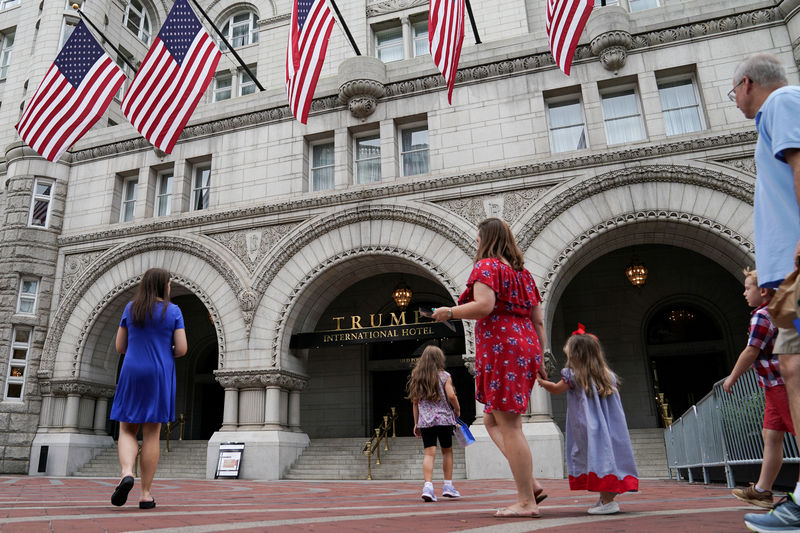By Jan Wolfe
(Reuters) - A U.S. appeals court on Tuesday said it would reconsider an earlier ruling that handed victory to U.S. President Donald Trump in a Democratic-backed lawsuit that accuses him of violating anti-corruption provisions of the U.S. Constitution with his Washington hotel.
The Richmond, Virginia-based 4th U.S. Circuit Court of Appeals said in an order that it would rehear arguments in the case, which was brought by the Democratic attorneys general of Maryland and the District of Columbia.
A three-judge panel of the court ruled on July 10 that the attorneys general lacked legal standing to bring the lawsuit, which alleged violations of constitutional provisions known as the Emoluments Clauses that bans the president from accepting gifts or payments from foreign governments without congressional consent.
All of the judges sitting on the court will review that decision during a Dec. 12 oral argument, according to the order.
"This is very encouraging news today in our efforts to hold Trump accountable under the Emoluments Clauses," Deepak Gupta, a lawyer working with the attorneys general, said on Twitter.
Trump opened the Trump International Hotel, just blocks from the White House, shortly before he was elected in November 2016. Unlike past presidents, he has retained ownership of numerous business interests, including the hotel, while serving as president.
Since his election, the hotel has become a favored lodging and event space for some foreign and state officials visiting the U.S. capital.
The lawsuit alleges that, in failing to disengage from the hotel, Trump has made himself vulnerable to inducements by foreign governments seeking to curry favor, violating the Constitution.
Maryland-based U.S. District Judge Peter Messitte, who was appointed by Democratic President Bill Clinton, last year allowed the lawsuit to proceed, a ruling Trump appealed to the 4th Circuit.
All three of the judges who heard the initial appeal and sided with Trump were appointed by Republican presidents.

Trump faces two other pending lawsuits making similar claims. One case was brought by a group of more than 200 Democratic Party lawmakers, while the other was brought by Washington-based advocacy group Citizens for Responsibility and Ethics.